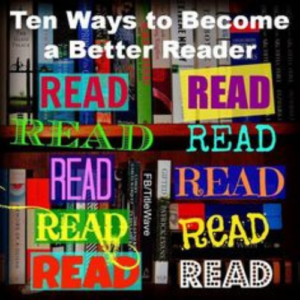Literacy in the Early Years
Reading, along with writing, makes up literacy, one of the four specific areas of the Early Years Foundation Stage (EYFS). Reading’s Early Learning Goal is:
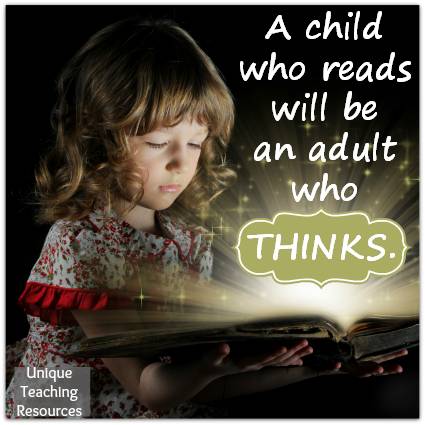
“Children read and understand simple sentences. They use phonic knowledge to decode regular words and read them aloud accurately. They also read some common irregular words. They demonstrate understanding when talking with others about what they have read.” EYFS framework
To be ready to start reading, children need to have a variety of skills in place. These early reading skills include matching, rhyming, awareness of phonics and the skills associated with language development such as listening, attention, alliteration and sound discrimination.
Literacy is one of the seven areas of the early years foundation stage. The term “literacy” is used by some to simply describe reading and writing, but in fact literacy covers a much wider range of learning. Literacy in the early years includes talking about books, print in the environment, early mark making and writing, as well as sharing books and reading.
At William Gilbert Primary School and Nursery, communication, language and literacy sit at the heart of our curriculum design throughout our Early Years. We are committed to engaging our children with stories and rhymes from a very young age. Early language development is established through daily stories and rhymes. Children will experience quality reading, story, rhyme, talk and play on a daily basis. This is carefully planned within directed teacher led sessions and in our continuous provision.
Literacy in the Early Years
Reading, along with writing, makes up literacy, one of the four specific areas of the Early Years Foundation Stage (EYFS). Reading’s Early Learning Goal is:
“Children read and understand simple sentences. They use phonic knowledge to decode regular words and read them aloud accurately. They also read some common irregular words. They demonstrate understanding when talking with others about what they have read.” EYFS framework
To be ready to start reading, children need to have a variety of skills in place. These early reading skills include matching, rhyming, awareness of phonics and the skills associated with language development such as listening, attention, alliteration and sound discrimination.
Literacy is one of the seven areas of the early years foundation stage. The term “literacy” is used by some to simply describe reading and writing, but in fact literacy covers a much wider range of learning. Literacy in the early years includes talking about books, print in the environment, early mark making and writing, as well as sharing books and reading.
At William Gilbert Primary School and Nursery, communication, language and literacy sit at the heart of our curriculum design throughout our Early Years. We are committed to engaging our children with stories and rhymes from a very young age. Early language development is established through daily stories and rhymes. Children will experience quality reading, story, rhyme, talk and play on a daily basis. This is carefully planned within directed teacher led sessions and in our continuous provision.
Reading in the Early Years
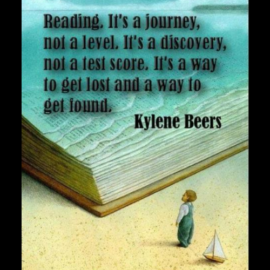
Reading is central to our ability to understand, interpret and communicate with one another. At William Gilbert Primary School we recognise that learning to read is a crucial part of children’s development and one which will support all future learning. As teachers we are in the privileged position to be able to teach children the skills required for reading and to instill a love for reading.
The Simple View of Reading
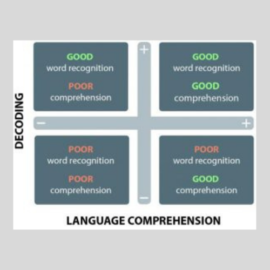
Reading has two parts – word reading and comprehension. Our reading curriculum is underpinned by the Simple View of Reading. To become a successful reader, children need to have both decoding skills (the ability to ‘read’ the words on the page) and comprehension skills (the ability to ‘understand’ what is on the page).
Phonics
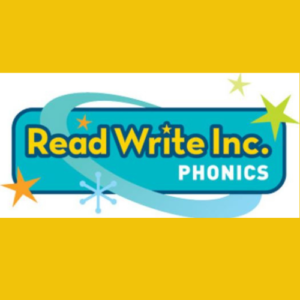
The teaching of phonics is an integral part of the curriculum in our school. We use the Ruth Miskins Read, Write Inc phonics programme. Children are taught the 44 phonemes that make up all the sounds required for reading and spelling. These phonemes include those made by just one letter and those that are made by two or more. As the children grow in confidence and experience, they are introduced to alternative ways of representing the same sound, e.g. ‘igh’ can be represented as ‘igh’, ‘ie’, ‘i-e’, ‘i’
The teaching of phonics is given high priority and children begin to decode and read words quickly. Children have discrete, daily phonics sessions where they are introduced to new phonemes, can practise and revise previous learning and have plenty of opportunities to apply the knowledge they have.
The teaching of phonics is delivered by staff skilled in teaching early reading. We provide rigorous, structured and enjoyable phonics activities that assist children in learning new sounds rapidly. We use a range of multisensory strategies to enthuse and engage the children, including the use of interactive whiteboards, movement, speaking and listening, songs, rhymes, practical activities and our very own ‘phonics aerobics’. Children work with pace and are encouraged to apply their knowledge across the curriculum with any reading or writing activities.
Alongside the technique of ‘sounding out’ new words, we actively encourage the learning of words from memory. Within our phonics planning, we teach children the high frequency words and common exception words, as highlighted in the National Curriculum. In Reception we refer to these sight words as our ‘red words’. Children are given opportunities to apply what they have learnt through reading, including time to read aloud to adults to practise their decoding skills and comprehension of what they are reading.
We regularly assess children’s phonics progress with the support of an assessment tool called Phonics Tracker.
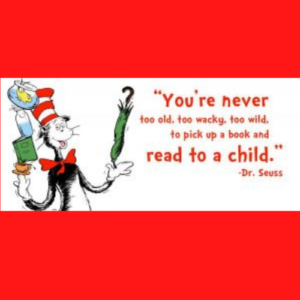
Teaching children to read and instilling a love of literature is a partnership with school and home being role models and facilitators. We encourage parents to read with their children at home and actively promote the importance of bedtime reading. Parents are well equipped to support all aspects of home reading through accessing the parent workshops we offer. Reading records are tools to assist parents in understanding the expectations and end points for their child.
We actively promote visits to our local library. Reception children visit the library in our village for story time. Annual holiday reading challenges run by the library service are signposted and participation celebrated. Children access the school library areas to select books to take home and share with parents or to support learning in class.
In order to foster a love of reading, we do not follow a prescriptive reading scheme. Instead, we use a wide variety of engaging, high-quality texts selected by staff. These books are levelled for difficulty and complexity using coloured book bands. Books are sequenced to support cumulative progression and they are closely matched to our school’s phonics programme. As well as ensuring that children have access to phonetically decodable texts (in line with their reading ability), we also ensure that we are well resourced with language-rich texts, picture books and novels to help nurture and develop vocabulary and spark an interest in reading. We want all of our children to ‘Love to Read’.
In Nursery and Reception, children are given the opportunity to explore books in small groups. This may involve books without words where the children are encouraged to tell the story, learn how to handle books, discover the directionality of print, look at and learn high frequency words and talk about familiar stories.
We assign book banded home reading books from Reception upwards. Every child is also issued with a Home Reading Record Book. At William Gilbert, we value and expect regular home reading. We monitor reading records on a daily and weekly basis. As children progress in their reading journey they use their reading records to respond to what they have read or to complete tasks set by the teacher to deepen their understanding of the text they are reading.
